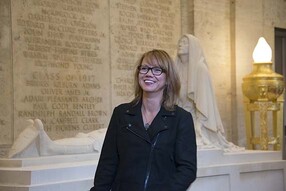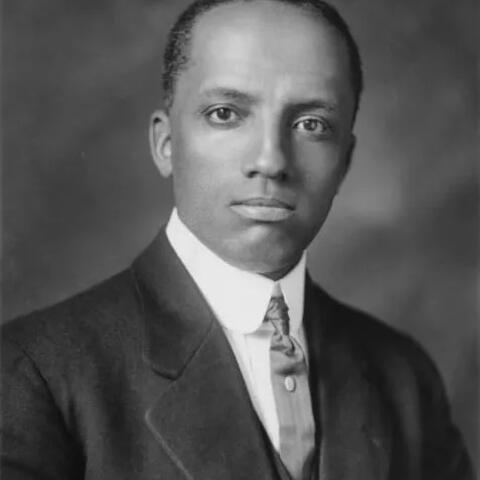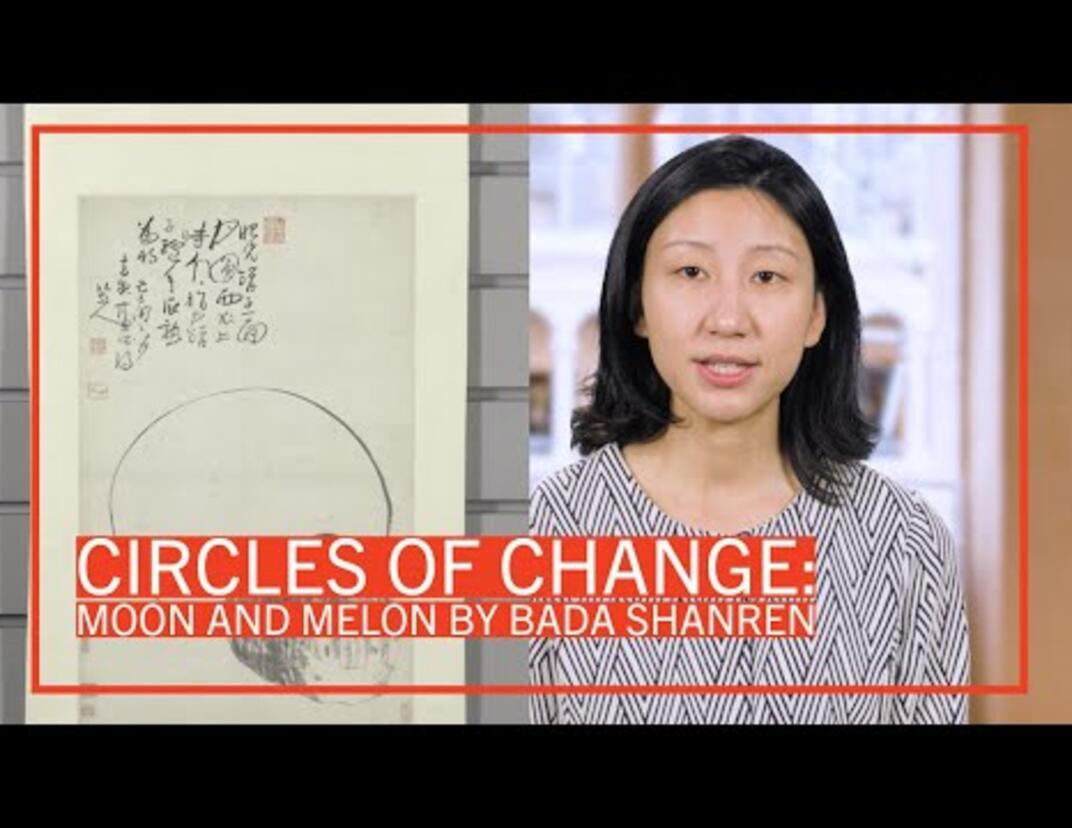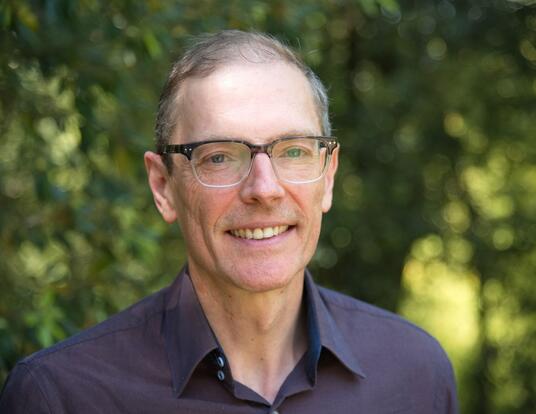Amy Benjamin cranes her neck to look toward the ceiling of the cavernous Memorial Room, in Harvard’s Memorial Church. “You know,” she says with a smile, “this is almost the perfect space for a trapeze.” As a PhD candidate at GSAS in the Committee on the Study of Religion, Benjamin is dedicated both to her scholarly efforts and her work as a trapeze instructor.“There are many experiences of transcendence on the trapeze,” she shares. “The moment you connect with someone catching you, or gain height or power in a trick, or watch others fly with grace and courage—they are all magical or religious moments.”
Benjamin pursues both facets of her life with passion. Her fascination with religion began as an undergraduate psychology major, as she wrote her senior thesis. “I became interested in the imagined landscapes that people experience God in,” she says. “How, essentially, our relationships with our family, friends, and worlds shape the way that we form a mental image of God or other divine figures.” After working in the nonprofit sector for seven years, she felt a pull to continue exploring the themes she’d developed in college and an increasing desire to seek an academic career. As she studied for an MTS at Harvard Divinity School, she fell in love with the study of religion and knew she had to continue on with a PhD through GSAS.
“I am fascinated by American religious history and culture, especially how it is shaped by race, gender, and sexuality,” she says. “I am also intrigued by how the histories of philosophy, theology, and literature provide accounts of the emotional appeals of humanitarianism and charity. What does it mean when morality and sympathy or empathy are invoked in historical and contemporary debates on humanitarianism? That empathy has a very long history in American and transatlantic religious and moral discourse,” she explains. “My dissertation explores the history and theory of sympathy and sentimentality in early American literature and religious thought. I’m looking specifically at the literary figure of Harriet Beecher Stowe and how her vast correspondence and works like Uncle Tom’s Cabin not only created a tidal wave of sentimental literature in the United States charged with race and gender implications, but also positioned her as a viable intellectual on the relationship of sympathy and religion.”
A glance at Benjamin’s research shows broad interests in a number of fields. “I always find it a challenge as a doctoral student with interdisciplinary training,” she says. “What fields am I in specifically? I delve into philosophical approaches, anthropological approaches, and historical approaches to my subject. But these all shape how I ask my continual question about the force of empathy: how is its long philosophical legacy a religious one, too? And what does it look like in different social and historical contexts?” The nature of graduate studies at GSAS allows her to follow her curiosity wherever it leads. “I think that the opportunities here really foster that.”
Benjamin knows that her work on the trapeze helps her share this interdisciplinary academic vision with undergraduates, because it enables her to bring a different energy to her teaching. “The scariest moment for a trapeze novice is the challenge to jump off the board, and you work with them on learning how to trust you as an instructor and trust themselves as they prepare for that experience,” she says. “Being able to talk someone off the board or catch someone for the first time translates into unique pedagogical skills that help me let students know that they have it. They have what it takes to be here at Harvard. They have what it takes to do their work. They need to focus on what’s ahead of them and jump—so they can learn how to fly.”
Photo by Molly Akin






